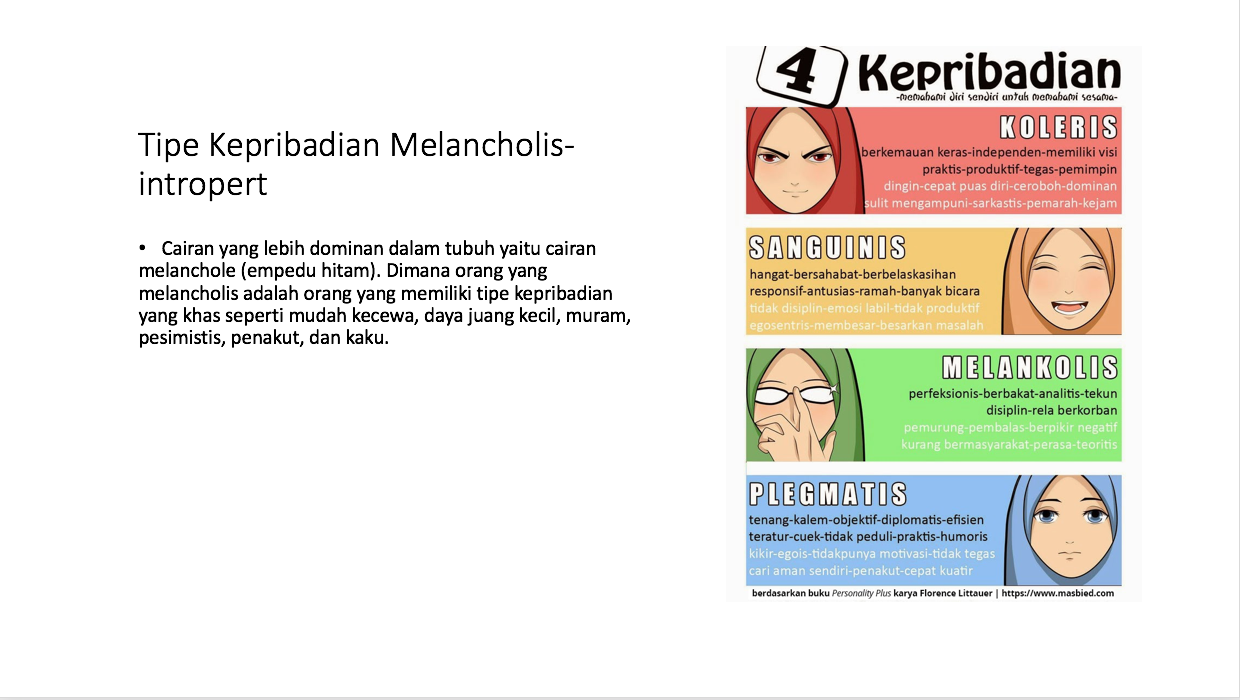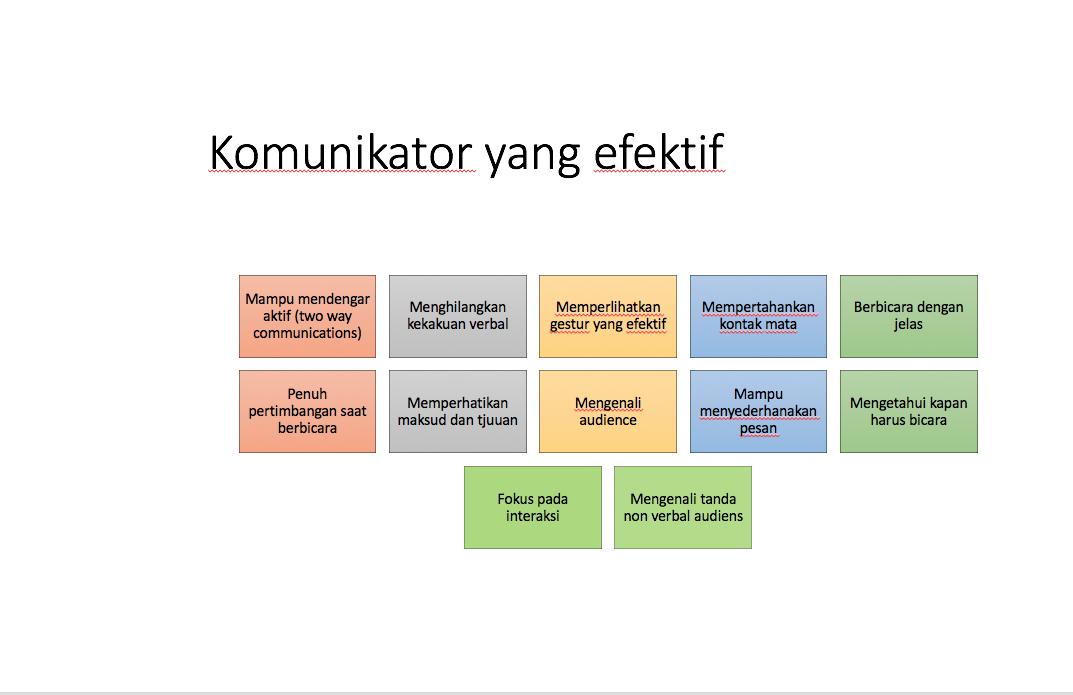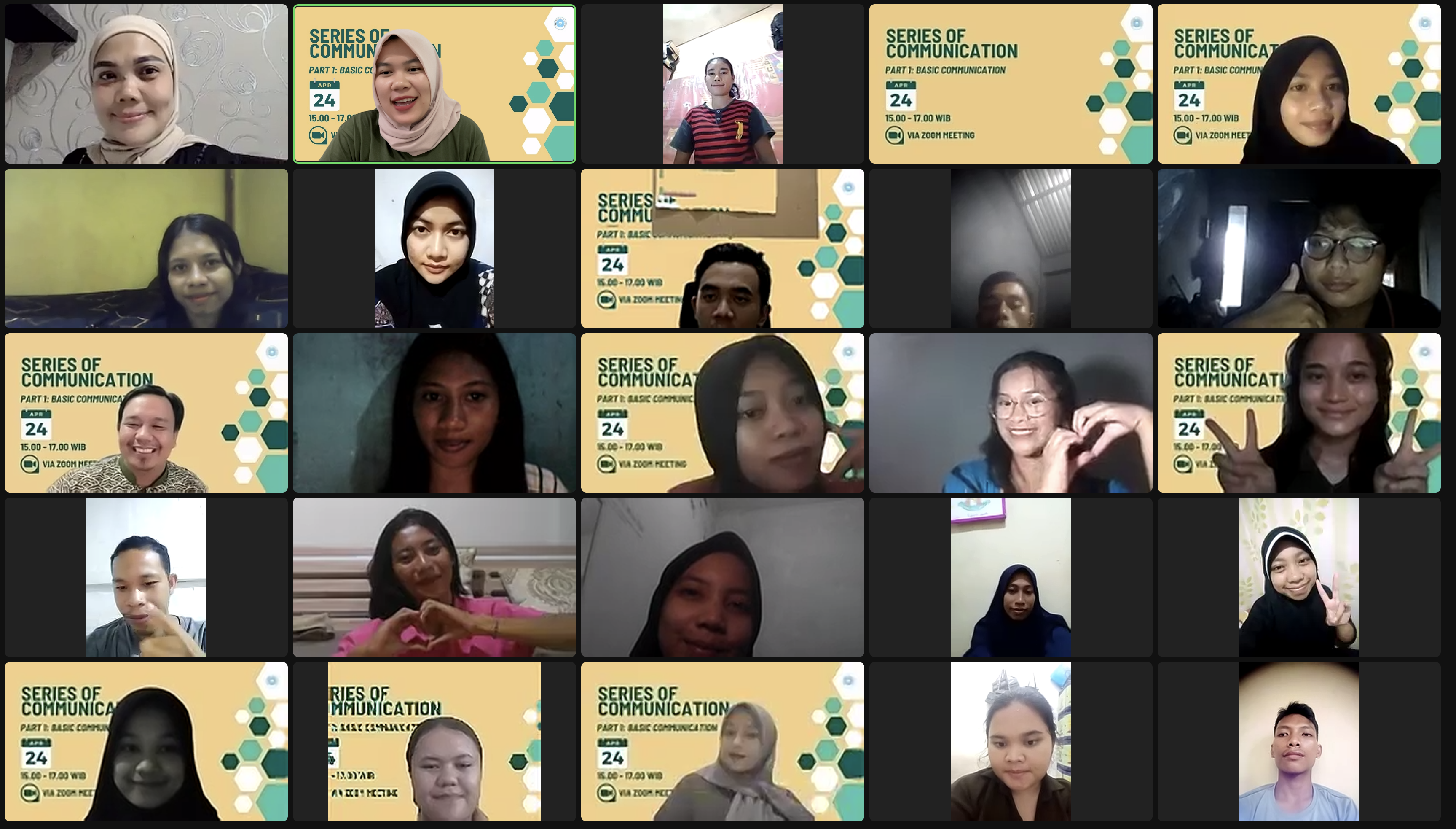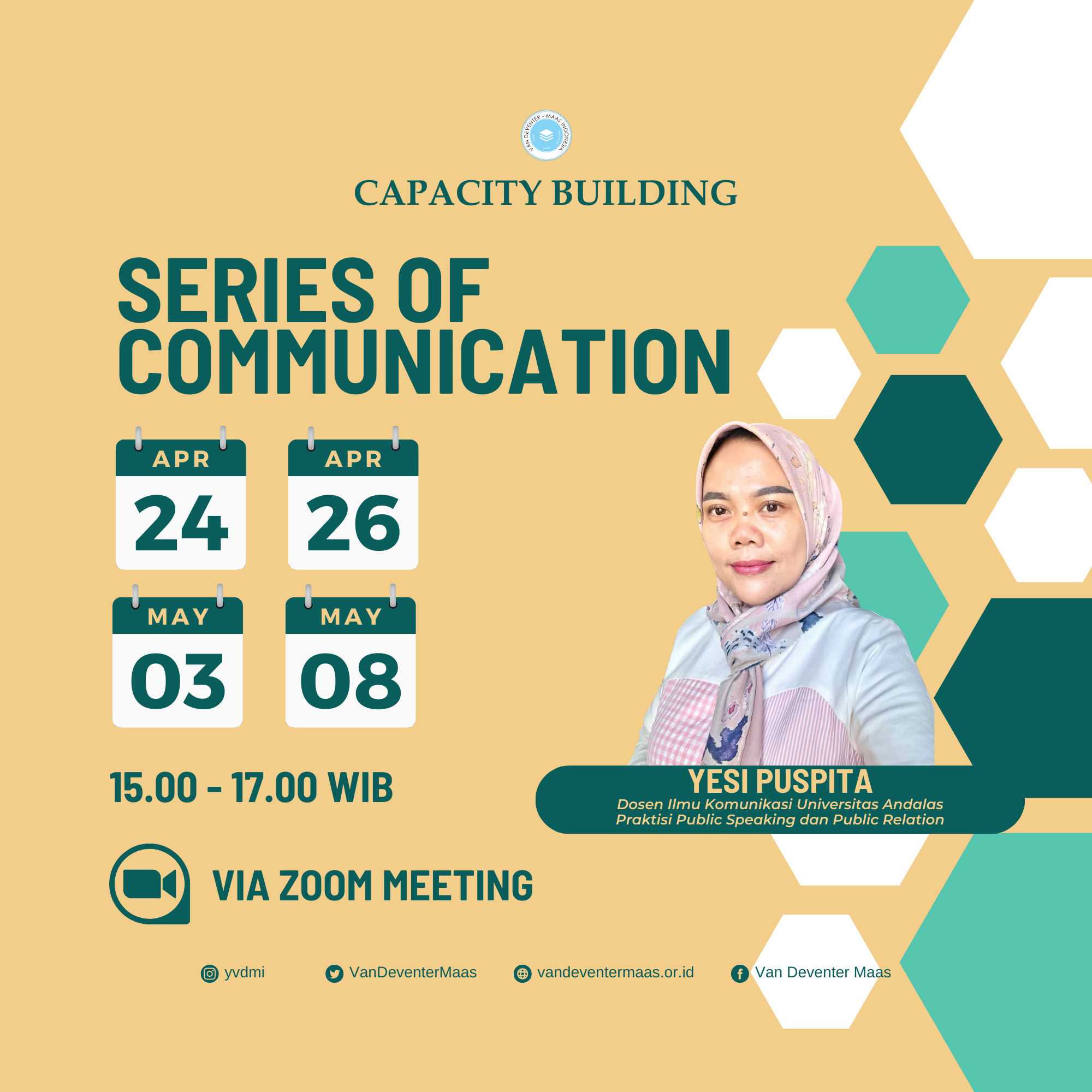2024 – Series of Communication
Van Deventer Maas Indonesia consistently held a capacity building face to face and online program, based on the needs of grantees. As a commitment, VDMI created a Series of Communication every Wednesday and Friday, on April 24, April 26, May 3, and May 8 2024 at 1 to 3 PM via virtual meeting Zoom. This activity aims to allow VDMI Families to be able to communicate confidently in front of many audiences and speak up professionally whether in public, educational, or professional. The series was facilitated by Yesi Puspita, Lecture of Communication Science Andalas University, Public Speaking and Public Relation Practitioner.
The beginning session started with the words “Communication Process is Not Easy”. Communication elements form a comprehensive view of communication, touching on the methods verbal and non-verbal. These include spoken and written words as well as body language, facial expressions, gestures, and tone of voice. The principles guide (ethics, aesthetics, logic) consist of integrity and rationality of communication process. Communication is irreversible, recognizing that once a message is sent, it cannot be undone, making the choice of words and actions is crucial. Fixing and ending relationships, understanding the role of communication in resolving conflicts, repairing relationships, and sometimes ending them effectively.

In the 2nd week, sometimes at some point, we don’t know that we have been hurting other people by verbal or non-verbal communication. When other people judge you, use that judgment as an encouragement to upgrade and self-improvement. Communication started by ourselves and knowing yourself. Personality plays a role in regulating the way a person behaves, it determines the qualities of a human being. Hipocrates and Galenus theory there are four personality types: 1) Choleric – typically ambitious and determined. 2) Sanguine – typically sociable and optimistic. 3) Phlegmatic – typically calm and thoughtful. 4) Melancholic – typically detail-oriented and introspective.

In the 3rd week, VDMI family continues to improve effective communication. To be an effective communicator we must more proactively do two-way communication, show the effective gesture, eye focus on our interlocutors, think before delivering the message then speaking clearly, be thoughtful, know your audience, and be able to simplify the messages. The communication effective points consisted of 1) Communicator 2) Message 3) Communicant 4) Media 5) Feedback 6) Situation 7) Goal. Annisa Rizka (Hang Tuah University) shared her personal trauma experience. She lost interest in communication because she was justified by the organization that she had joined. Facilitator gave feedback to Nisa, she had to choose one trustworthy person that can build morale support so she can start to speak again. Facilitator suggested she try to speak up, so she can fix the relationship with her circle.

In the 4th week, this final session the participants were asked to practice following the three sessions of a series of Communication materials that had been presented before. Also, they had a chance to do personal speaking in front of an audience with materials that had been prepared before. Facilitator was asked participants to do a personal branding of themselves. The attendees were excited about the series and after all parts were complete, they expressed their gratitude to VDMI for facilitating a series of communications.



